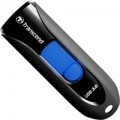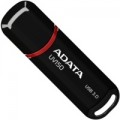Write speed
The maximum speed of writing data to the drive. The
higher the write speed, the less time it takes to transfer information from a computer to a USB flash drive, which is especially critical for large amounts of data. Just like the read speed, in fact the write speed is determined by a number of factors, in particular, the connection interface (see Connection interface), the design features of the drive, system load, etc.
Features
—
Wi-Fi module. The presence in the design of the flash drive of a built-in module for wireless data transmission according to the Wi-Fi standard. This standard is widespread in modern electronics, its support is almost mandatory for portable devices such as smartphones, tablets and laptops. Initially, Wi-Fi was used to create computer networks, but more recently it has also been used for direct communication between devices, and the data transfer speed in modern versions is enough even for video streaming. The specific capabilities of flash drives with this feature may vary: some provide wireless communication only when connected to a computer (that is, they work like adapters), others are equipped with their own power sources and can function autonomously, playing the role of external storage with a wireless connection. Anyway, the presence of a Wi-Fi module may come in handy if you need to use a flash drive with the portable devices described above.
—
Built-in card reader. The presence in the design of the flash drive of a card reader — a device for reading memory cards. Thus, data can be written, stored and read using not only the drive's own memory, but also removable memory cards. Such cards are increasingly used as devices for storing information in modern mobile devices — mobile phones, players, etc.; a card reader greatly simplifies the exchange of information between such devices and a PC
.... Given the compact size of modern flash drives, such card readers are usually designed for microSD and similar formats.
— Hardware data encryption. The ability to encrypt data to write to the drive. Such flash drives have an additional chip responsible for encryption, and, unlike conventional password protection, information is written to the drive in an already encrypted form. This allows you to reliably protect confidential data — in case of loss or theft of the device, it will simply be impossible to read it.
— OTG support. Ability to use a flash drive in USB OTG mode. This technology is used in smartphones, tablets and other mobile devices; it allows you to connect various external peripherals to such equipment, including USB drives. The peculiarity of such a connection is that mobile gadgets usually do not have full-sized USB ports, and the connection is made via a regular universal connector — microUSB, USB Type-C or Lightning (see "Connection interfaces"). Actually, the presence of one of these connectors is mandatory for a flash drive with USB OTG support — due to this, you can use a drive without an adapter with a mobile device. Note that ordinary flash drives that have only a full-size USB connector can also work well with mobile equipment — however, an adapter is required for connection, so such models are not considered OTG-compatible.
— U3 Smart Drive support. U3 Smart Drive technology allows you to use a flash drive to store a complete set of user tools: programs, data, passwords, settings, etc. Thus, the user is freed from being tied to a specific computer and can change them at his discretion, each time continuing to work from the place where he left off last time — which is especially convenient if you often have to move between several computers or travel a lot. On the computer side, U3 Smart Drive technology is supported only by operating systems of the Windows family (starting from 2000 and higher).
— Fingerprint scanner. A device for recognizing the user's fingerprint. Allows you to restrict access to the contents of the flash drive: with properly configured settings, you can read information from the drive only after the scanner recognizes the correct fingerprint. This prevents unauthorized access to sensitive data.
— Write protection. The presence of a drive protection system against accidental overwriting — usually in the form of an external slider switch that blocks recording. Switching the flash drive to read-only mode allows you to protect important information on it from accidental erasure.
— Read/write indicator. An indicator (usually a light one) that indicates that data is being read from or written to a USB flash drive. During the exchange of information, the drive must not be disconnected from the computer — this is fraught with damage to both information and the device itself. The read / write indicator allows you to determine whether data is being exchanged and, accordingly, whether the USB flash drive can be turned off.Retractable connector
The USB flash drive has a USB plug that can be pulled out of the case during use and hidden in it during storage. This is convenient, first of all, because such drives do not need a protective cap, which can be easily lost; however, on the other hand, retractable connectors are considered less reliable than fixed ones.
Lanyard hole
A hole in the body of the flash drive that allows you to securely fasten the drive to the strap and wear it as a key fob. As a rule, the
eyelet for the strap is located on one of the ends of the flash drive body (on the side or in the center).
Manufacturer's warranty
Manufacturer's warranty provided for this model.
In fact, this is the minimum service life promised by the manufacturer, subject to the rules of operation. Most often, the actual service life of the device is much longer than the guaranteed one. But an indicator of
5 years suggests that the flash drive is more likely to be lost or become irrelevant. You can also come across
a lifetime warranty, however, in this case it is better to drown out the details to which it applies. And anyway, it implies a certain period of time, though measured in decades. In addition to confirmation of reliability, such a guarantee allows you to contact the supplier after a while to eliminate possible problems (of course, not mechanical). But the difficulties in implementing this procedure (the representative office is located only in large cities) and the rare cases of the need for this (after all, it is easier to buy a new flash drive, with the exception of vital information on the old media) make the lifetime warranty more of a marketing ploy than a cool chip.

